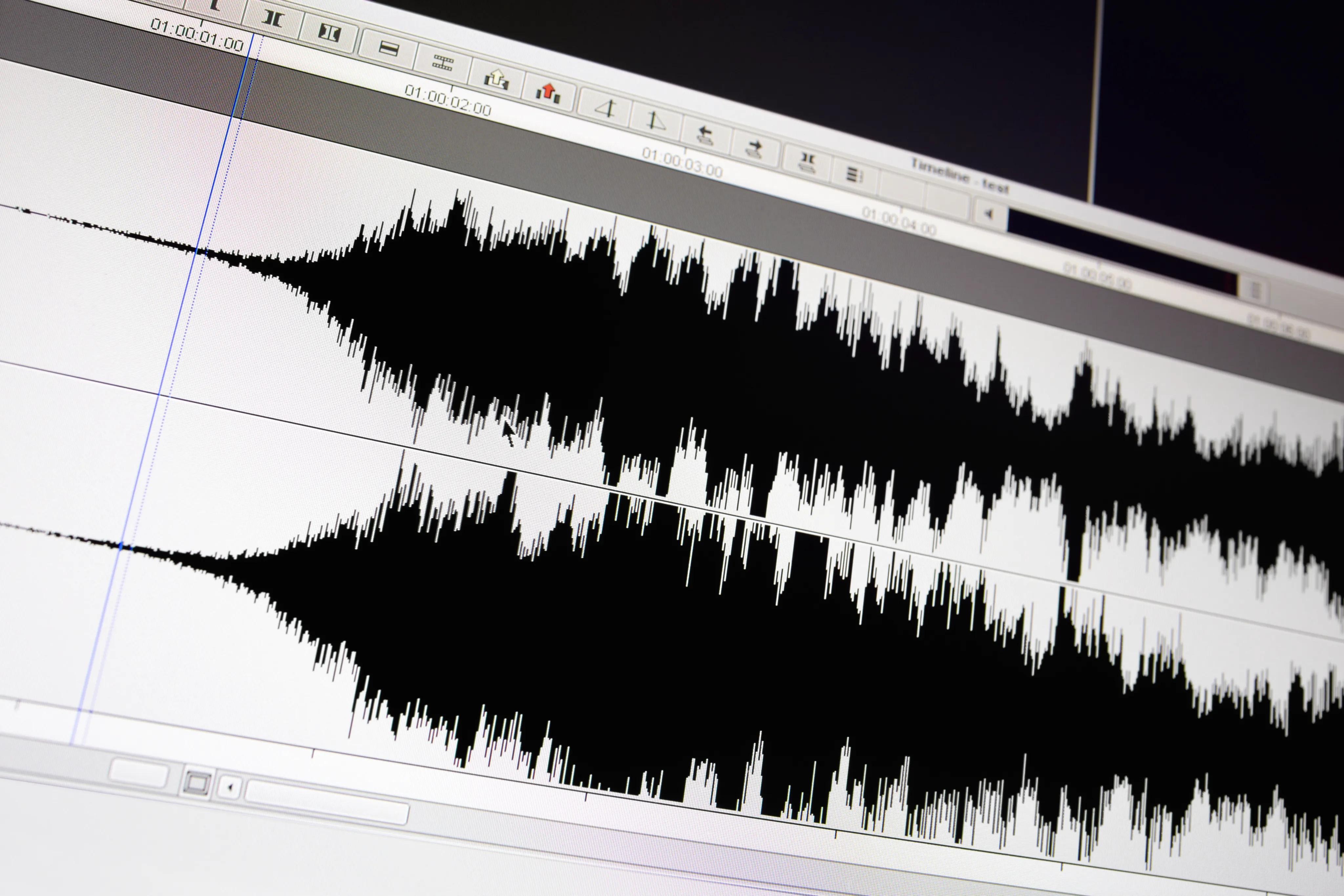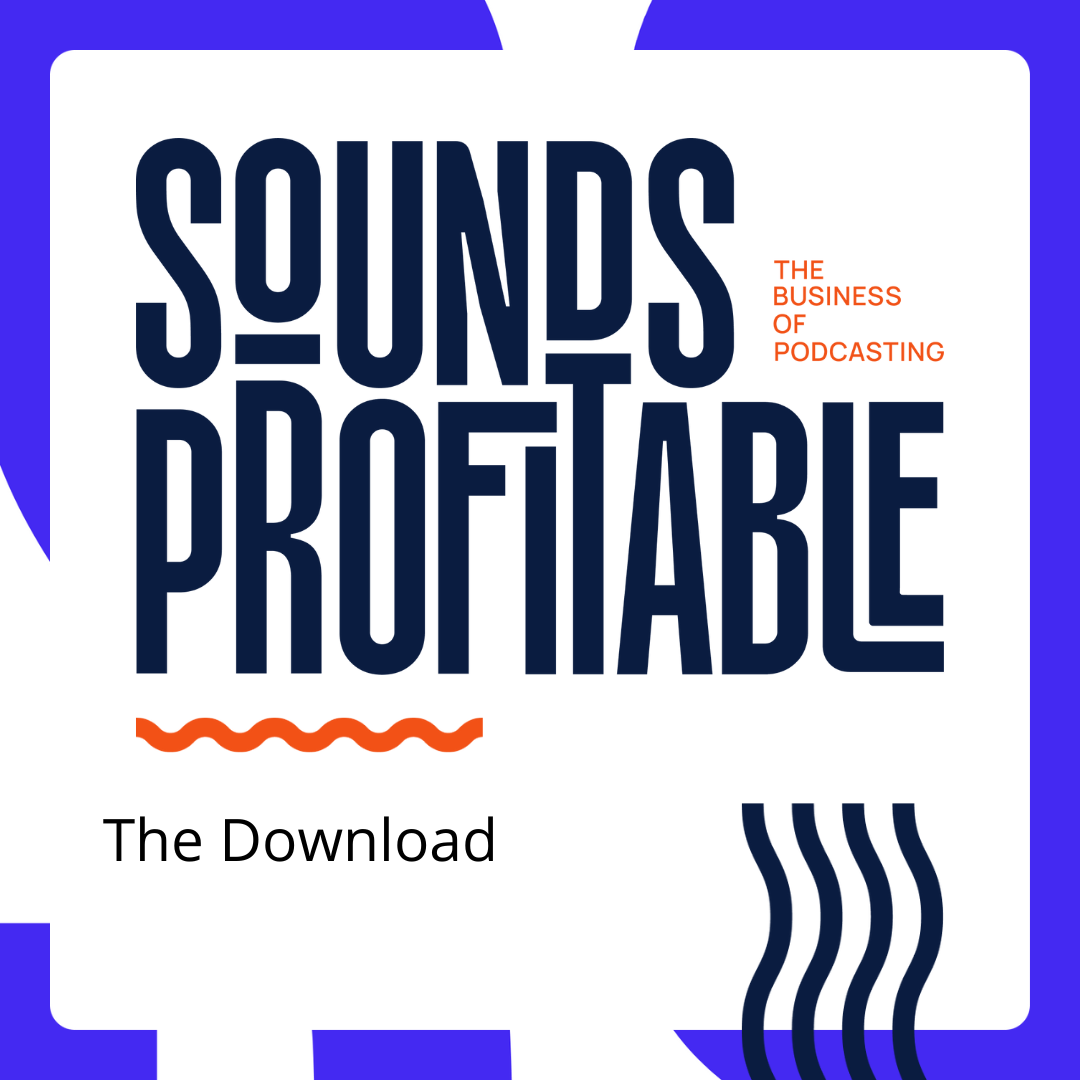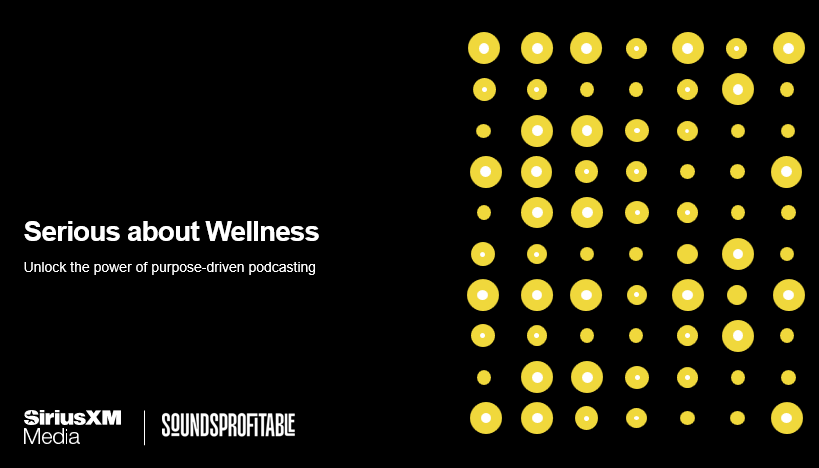Gavin: This is The Download from Sounds Profitable, the most important news from this week and why it matters to people in the business of podcasting. I’m Gavin Gaddis, in for Manuela Bedoya.
Shreya: And I’m Shreya Sharma.
Gavin: The Download is brought to you by Magellan AI. Track the trends in spend, ad load, podcasts on YouTube, and more with Magellan AI’s advertising benchmark report for Q4, available now. You can find a link in the description or visit Magellan dot AI.
Shreya: This week: Spotify Stream On Announces New Features, RSS.com and Spreaker make transcripts more accessible, Marketers adapt to serve niche communities, and The Infinite Dial turns 25.
Let’s get started.
Spotify Stream On Announces New Features
Gavin: Yesterday Spotify hosted their annual Stream On live event from Los Angeles. Throughout the 90 minute presentation a series of guest speakers, ranging from Spotify executives to the Jonas Brothers, debuted new features from Spotify and the company’s goals in the near future. Let’s look at the ones relevant to podcasting:
Starting yesterday the Anchor brand has been retired. The hosting service and other podcasting features will be brought under the name Spotify for Podcasters. In addition to the new coat of paint for Anchor, several features originally only available to podcasts hosted on Anchor have been made platform-agnostic.
Chief among these features is the ability to upload video podcasts to Spotify, a particular pain point for video podcasters outside the Spotify umbrella. In addition to video uploads, users will have access to net-new features like Q&A posts and polls that will be visible on the podcast’s page in Spotify. The Spotify for Podcasters dashboard will also feature more advanced analytics. As one slide of the presentation announced:
“Spotify is open for business.”
Speaking of business, during the segment focusing on the Spotify Audience Network, Chief Business Officer Alex Norstrom announced the newest publisher to join SPAN is none other than podcasting giant NPR.
In the world of monetization, Spotify podcasters are getting a sizeable upgrade in the form of a Patreon partnership. Now podcast listeners will be able to listen to premium content hosted on Patreon from within Spotify itself. With this announcement, Spotify now has a direct answer to Apple’s paid podcast subscription service.
This year’s Stream On was a promising one, with a healthy focus on the podcasting industry overall. This renewed focus on upgrading the platform, adding new features, and making older features more accessible to podcasters everywhere is a promising one. Spotify seems to be interested in growing with podcasting instead of growing independently. We love to see it.
RSS.com and Spreaker make transcription free
Shreya: To continue the trend of features that benefit everyone in podcasting we have two big transcription announcements. First: this Monday RSS.com announced all podcasts hosted on their platform will now have access to automated transcription.
When generated, these transcripts will be posted automatically to the show’s episode page on RSS.com, as well as pushed the show’s RSS feed. This will allow the transcript to be displayed in podcast listening apps that support Podcasting 2.0 tags. According to this Monday’s issue of Podnews, the list of apps that actively support transcripts through this method includes Podverse, Podbean, and Podcast Addict.
At launch the automatic transcripts support thirteen languages: English, Spanish, Arabic, Catalan, Dutch, French, German, Indonesian, Italian, Japanese, Polish, Portuguese and Turkish.
In the official press release, RSS.com co-founder Ben Richardson said there were several features the company considered essential to the tool for it to be ready, including multiple languages and ease of use for the podcaster. From the press release:
“We encourage all types of podcast player apps to facilitate the use of captions and transcripts our podcasters can provide in order to open up even more of podcasting’s potential.”
And for the second part of this Monday transcription tale: the folks at Spreaker launched FreePodcastTranscription.com, a free tool available to anyone regardless of affiliation with Spreaker. The website touts a high level of privacy and security due to everything being run locally in the user’s browser. From the site’s copy:
“We don’t send the mp3 file to a server. All the processing happens on your device.”
Since that processing is kept in-browser instead of farmed out to an expensive server network, the burden of effort and cost is shifted to the user, allowing a lightweight, free option for podcast transcription. Users pick from one of sixty language options, select the file needing transcription, and run the process. After some time, dictated by the power of the computer, a .SRT file is generated for download.
The easier it is for podcasters to generate transcripts, the more pressure there will be for podcast apps to fully implement them. Not only does the popularization of transcription make podcasting more accessible to a wider audience, it increases the search engine optimization far beyond what can be written in a given episode title or description. More people can enjoy podcasts, and more people will be able to find them. A win-win scenario.
Marketers adapt to serve niche communities as culture fragments.
Gavin: This week an eighth-part article series on social fragmentation in the internet era kicked off on Digiday. The first piece, written by Kristina Monllos focuses on the death of the classic “water cooler moment.” From the article:
“Today, we not only don’t have a watercooler — as the return to the office hasn’t been a return to pre-pandemic normal — but we have fewer mass cultural moments where everyone is paying attention to one thing. In recent years, the proliferation of content online has made the experience of the internet more individualized, according to agency execs, allowing people to focus on specific niches that they find interesting rather than tune into whatever they’re supposed to like because everyone else says they should.”
A natural reaction to this fragmentation is to focus down on appropriate niche groups and meet the individuals at their own individualized online experiences. Unfortunately this also comes with the task of convincing marketers to buy in, as they tend to want to stretch their budgets as wide as possible. Some of this convincing comes in the form of sobering conversations explaining that even the largest brands don’t have the money to target every audience at once.
Fragmentation has lead to more digital boots-on-the-ground marketing, such as Cristina Lawrence, EVP of consumer and content experience at Razorfish, aiding a CGP company in establishing a viral TikTok account. Primarily by being flexible and producing content quickly, the company could pursue moment-to-moment trends as they developed and meet users where they naturally were going.
Much like when Apple Tracking Transparency turned the advertising world on its head, save for podcasting, our industry is uniquely positioned to serve targeted communities. Podcasts, by their very nature, create their own niche groups. If properly maintained and surveyed, a podcast community is the perfect place for niche targeting.
Edison Research Publishes 25th Anniversary Edition of The Infinite Dial
Shreya: For our final story of the week, why not end on some more good news? A flashy 25th anniversary edition of Edison Research’s report The Infinite Dial dropped last Thursday. Here’s some highlights from the 73 page document to take you into the weekend:
Monthly podcast listening for the total US population 12 and up dipped last year, going from 41% in 2021 to 38% in 2022. Listenership has risen once more, with 2023 numbers sitting at 42% of the population, an estimated 120 million listeners. Weekly podcast listening took a similar dip in 2022, slipping from 28% of the population to 26%. This year it has climbed back up from the slump to 31%, or an estimated 89 million podcast listeners in the US alone. From the observations slide:
“Data appears to reflect ‘post-pandemic’: on pattern from previous years.”
In essence, it appears the number fluctuations caused by the COVID-19 pandemic severely changing daily routines have calmed. Now the industry is back to the familiar, steady growth seen in previous years.
Shreya: Finally, it’s time for our semi-regular roundup of articles we’re calling Quick Hits. These are articles that didn’t quite make the cut for today’s episode, but are still worth including in your weekend reading. This week:
Advertisers can use their own first-party data to target podcast ad campaigns, but are they? By Alyssa Meyers. A piece interrogating how podcasting can implement first-party data in ad campaigns, as well as interrogating why certain companies prefer or avoid it. Spoiler alert: first-party, like programmatic and any other tool, has its uses and can work well when used appropriately.
Not All Audio is Created Equal: Why Media Buyers Should Avoid Bundling Podcasts with Streaming in Programmatic Transactions by Acast. A brief article highlighting the potential downsides to bundling podcasts with digital or streaming inventory. Bad things happen when trying to fit the square peg of podcast ad measurement in the round hole of streaming measurement.
Ambie Awards: ‘Chameleon: Wild Boys’ Wins Podcast of the Year by J Clara Chan. The Podcast Academy’s yearly awards ceremony, known as the Ambies, took place earlier this week and The Hollywood Reporter has coverage, including a list of the big winners.
Spreaker is now free, a press release by Spreaker. Spreaker’s existing free plan has new offerings with unlimited episode uploads, access to Spreaker’s programmatic monetization, and customizable RSS feeds. For more on Spreaker’s offerings, check out the Sounds Profitable DeepDive.
Gavin: And that was The Download, brought to you by Sounds Profitable! Today’s episode was built using Spooler and hosted on ART19. Find out more at Spooler.fm and Art19.com
I know we went through today’s stories fast, so be sure to check out the links to every article mentioned, right in your podcast listening app, or on SoundsProfitable.com/TheDownload. And thank you for sticking with us as we bring you the top stories you might have missed from the past week. I’m Gavin Gaddis
Shreya : And I’m Shreya Sharma. Our producers are Bryan Barletta, Gavin Gaddis, and Tom Webster. Special thanks to Art19 for hosting The Download. And thanks to you for joining us.


 "
"


